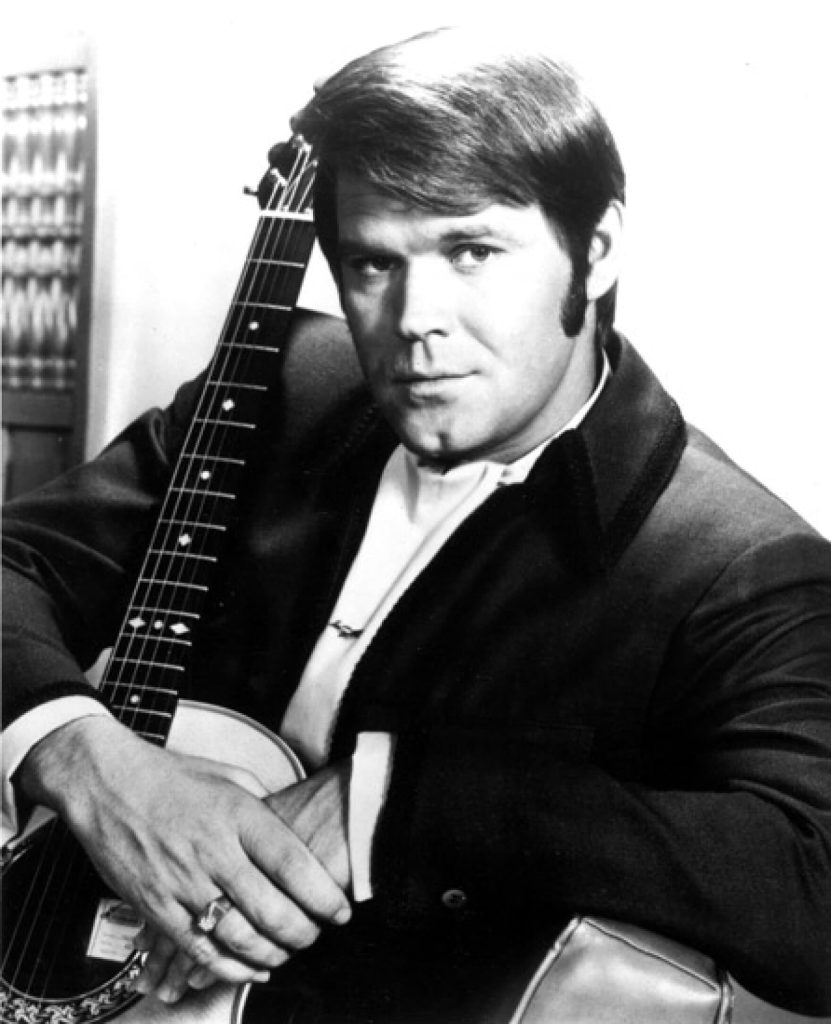
Glen Campbell’s “Wichita Lineman”: A Timeless Ode to Solitude and Duty
In 1968, Glen Campbell released one of the most iconic songs in the history of American music, “Wichita Lineman,” written by the brilliant Jimmy Webb. This song is not just a classic country tune; it’s a hauntingly beautiful piece that transcends genres, capturing the loneliness and dedication of a lineman in the vast, open plains. Backed by members of the legendary Wrecking Crew, Campbell’s performance turned this track into an enduring masterpiece, peaking at No. 3 on the Billboard Hot 100 and No. 1 on the Country chart, making it one of the defining songs of the late 1960s.
“Wichita Lineman” was born out of a simple yet urgent request. After the massive success of “By the Time I Get to Phoenix,” Campbell reached out to Webb, asking for another “geographical” song that could capture the same kind of emotional depth. Webb, who had a knack for storytelling through music, found his inspiration while driving through the Oklahoma panhandle. He imagined a lone lineman atop a telephone pole, speaking into his handset, with the vast landscape stretching endlessly around him. The image was so powerful that Webb quickly penned the song, though he considered it unfinished at the time.
Despite Webb’s reservations about the song’s completeness, Campbell and his producer Al De Lory knew they had something special on their hands. The recording session brought the song to life, with Campbell’s guitar work, which had already earned him a reputation as one of the best session musicians in the industry, providing the perfect accompaniment to his tender vocals. The orchestral arrangements by De Lory added another layer of depth to the track. The high-pitched violins, evoking the sound of wind blowing through wires, and the monotonic ‘Morse code’ motif, mimicking the sounds a lineman might hear through a telephone line, created an atmosphere that was both ethereal and grounded in reality.
One of the most memorable aspects of “Wichita Lineman” is its unique bass line, performed by Carol Kaye. The descending six-note intro and the improvised bass lick that was later translated into strings by De Lory are just a few examples of the intricate musical craftsmanship that went into the song. These elements, combined with Campbell’s emotional delivery, create a sense of isolation and longing that resonates deeply with listeners.
The song’s lyrics are sparse but powerful, capturing the internal struggle of a man who is physically isolated but emotionally connected to someone far away. Lines like “And I need you more than want you, and I want you for all time” convey a depth of feeling that is both universal and deeply personal. It’s a song about duty, longing, and the quiet resilience of a man who finds solace in his work, even as he yearns for something more.
“Wichita Lineman” was more than just a hit—it was a cultural touchstone that showcased the evolving sound of country music. It blended traditional country elements with pop and orchestral influences, creating what many have called “the first existential country song.” This blending of styles helped the song cross over to a broader audience, solidifying Campbell’s place as a crossover artist who could appeal to both country and pop fans.
Over the years, “Wichita Lineman” has been covered by numerous artists, each bringing their own interpretation to the song, but none have captured the haunting beauty of the original. It remains one of Glen Campbell’s most beloved songs and a testament to Jimmy Webb’s genius as a songwriter. Decades later, it continues to be a favorite among music lovers, a song that speaks to the quiet, unspoken emotions that lie at the heart of the human experience.